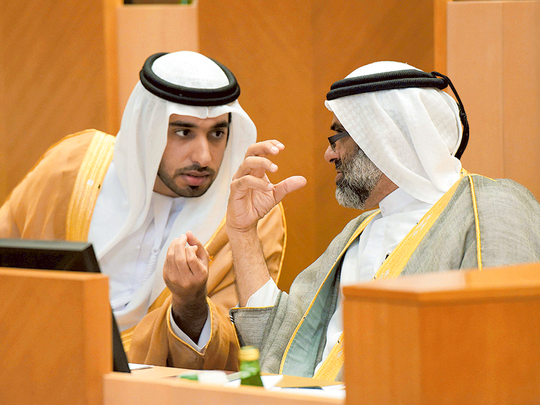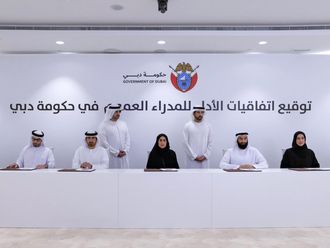
Abu Dhabi: Members of the Federal National Council yesterday (Tuesday) pressed for an increase in the federal health care budget, with special emphasis on providing equal medical services and health insurance coverage for citizens across the country.
Members of the House also voiced concern over the high prevalence of diabetes and obesity as well as cancer among Emiratis, as they debated health policies in the presence of the Minister of Health, Dr Abdul Rahman Bin Mohammad Al Owais, who pledged to work closely with local health authorities to improve the situation for Emiratis who grow up to become overweight adults if they don’t make a lifestyle change in time.
Members of the House demanded that more control be exercised on private hospitals conducting these surgeries.
According to the World Health Organisation (WHO), at least 2.8 million people die every year from being overweight or obese. The worldwide prevalence of obesity has more than doubled between 1980 and 2014, with 13 per cent of the world’s adult population alone found to be obese last year.
Nearly 47.5 per cent of UAE residents were overweight, with a BMI between 25 and 30, while another 13 per cent were obese, with a BMI over 30. Since the average BMI in the UAE is 25.6, the average UAE resident is considered overweight, according to most recent surveys.
Ali Jasem, a veteran member of the House from Umm Al Quwain, said health challenges had remained steady since 2003. ‘Every year we speak of medical mistakes, high prevalence of diseases and lack of resources and facilities,” Jasem said.
The members of the council voiced concern over the high incidence of cancer among citizens, quoting a study conducted by the Abu Dhabi Health Authority showing 77 cases among every 10,000 people. The study also showed that 20 per cent of cases are prostate cancer.
Tawam Hospital’s statistics showed a 35 per cent increase in cancer cases between 2007 and 2009.
The Minister of Health told the council the ministry was working hard to provide health care of a high standard to citizens and residents across the country.
“You may be surprised to know that many [private] hospitals and clinics transfer patents to the Ministry of Health hospitals for treatment. They seek a high standard of health care. And even European and Gulf hospitals are sending their doctors for training in our public hospitals,” Al Owais said.
The minister added that federa draft laws on health insurance and psychiatry were presented to the Cabinet.
Donation of organs
Noora Al Kaabi, a member of the FNC from Abu Dhabi, demanded that donation of organs be made available for Emiratis.
“When can people log on to a website to donate or receive donated organs in the UAE?” asked Al Kaabi.
She demanded that a federal law on organ transplant issued in 2010 be enforced, pointing out that Saudi Arabia has surpassed the UAE in this regard.
The UAE has approved transplant of organs from live or dead donors other than the relatives of the recipient.
The written consent of the donor and/or his first and second degree relatives is mandatory if the organs are transplanted after the donor’s death, a circular from the ministry said.
A healthy individual can donate organs if he or she presents a signed written consent attested by two witnesses. The circular does not specify which organs a live donor can donate.
Live donors have to be over 21 years of age and must be in stable physical condition. They should also have the same blood type as the recipient.
The Health Minister agreed that the law should be enforced, expressing the hope that he will be registed among the first donors of organs.












